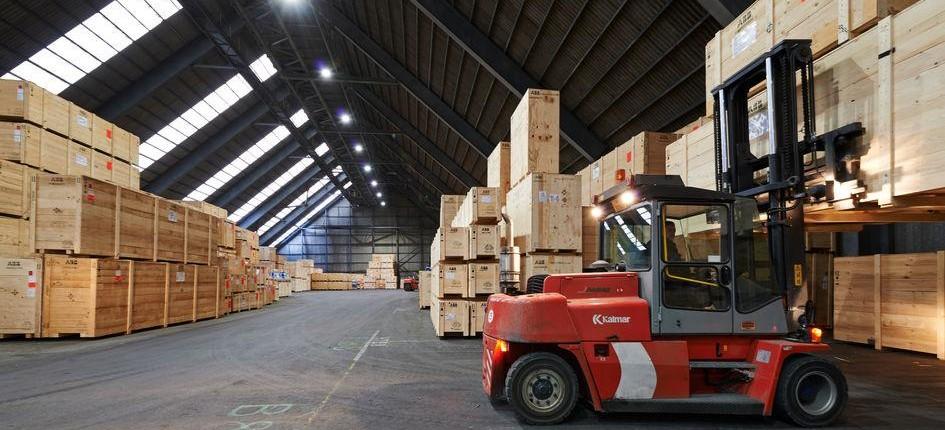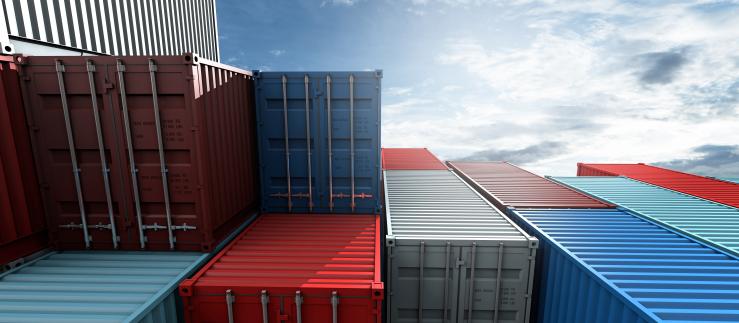Internationally active SMEs have always been exposed to certain uncertainties and risks. Markets have become increasingly unpredictable and volatile in recent years, and since the coronavirus crisis, uncertainty has become the new norm. Internationally active SMEs therefore need to consider an ever-increasing number of aspects.
We talked to Mr. Stefan Schibli, Team Leader Supply Chain Management at SFC KOENIG AG, and asked him a few questions. As an expert in this field, what tips can he pass on?
What are your current challenges and how are you dealing with them?
We are currently concerned with the uncertainties in the markets and the volatile order intake. The coordination of the entire supply chain borders on a mammoth task. Coordinating volumes with suppliers requires very close contact in order to avoid over- or under-stocking. Many of our suppliers have introduced shorter working hours, which means availability is not always guaranteed. The majority of SFC KOENIG AG's suppliers are located in Switzerland or in neighboring countries, so the freight situation is not quite so critical. The current supply situation of our subsidiaries in China and the USA is causing us more problems. Especially for the USA, the amount of transport capacity in airplanes is still very limited. This means we have to allow more time when it comes to planning air freight. At the beginning of the corona pandemic, we also had a case where deliveries stopped in Zurich.
What criteria do you use to select your logistics partners and what represents a good partnership with a transport company for you?
We try to achieve a good mix between price and service. Where possible, we strive for partnerships in which all companies of SFC KOENIG AG can benefit. Permanent contact persons at the logistics partners are very important for our employees, as this makes it easier to establish contact with them.
Where can time and money be saved when it comes to international business?
"The use of free trade agreements is essential for us, especially since the EU and China are among our largest markets".
The status of authorized exporter helps us to reduce administrative outlay. However, this also means that internal company know-how regarding customs tariff numbers, origin of goods and export compliance must be established and continuously developed. The corona pandemic has also forced us to shift up a gear with regards to digitization, which means we are now almost completely paperless.
In the event of transport damage, we try to define suitable remedial measures together with our customers and logistics partners in order to avoid future damage.
Which topics should companies that are new to international business deal with early on and why?
A common, basic understanding of compliance is needed first of all. Topics such as the origin of goods, customs tariff numbers, import and export are not only important for purchasing or export. Management must set a good example and drive these issues forward.
"A superordinate strategy is needed in order to determine which markets a company would like to develop, which conditions exist in the market regarding free trade agreements, and how these points can be influenced by procurement and manufacturing."
The total, overall costs must also be taken into consideration, from procurement, to delivery, through to the customer. Conflicting objectives can have a negative impact on total costs. Procurement at the lowest possible price can also lead to higher customs duties being charged to the customer, which in turn can result in possible sales arguments being nullified.
The world is changing. Are there any typical knowledge gaps arising, where information gets lost between the roles of buyers and supply chain managers or management, which you think can be closed relatively easily?
Unfortunately, most training courses do not provide basic knowledge about foreign trade and customs. This gap can be closed relatively easily with appropriate in-house training. The main objective here should be to raise awareness of the potential risks of non-compliance in this area. What's more, changes to these specifications must be recorded and refreshed on a regular basis.
Personal information
Stefan Schibli, Team Leader Supply Chain Management at SFC KOENIG AG.
After training as a machine mechanic, he spent the first few years working in assembly and production. The training as Technician HF (Higher Federal Diploma) in business processes, the postgraduate diplomas as General Manager NDS FH and Business Coach HF, and this year's training as Customs and Trade Professional at procure.ch have enabled him to take on various specialist and management tasks along the entire supply chain.









